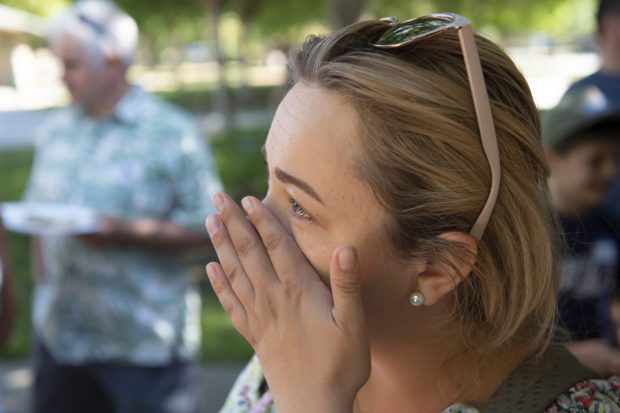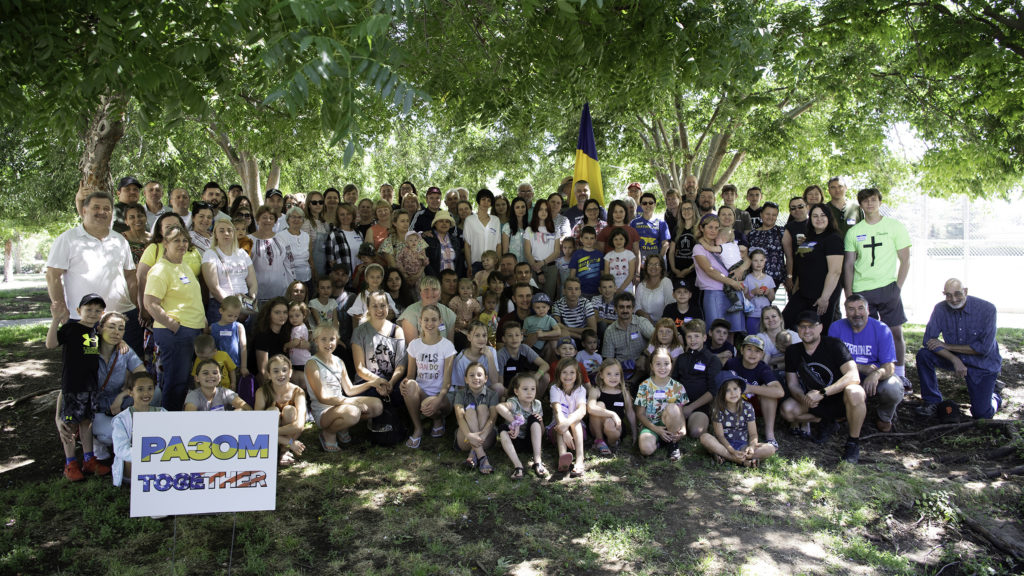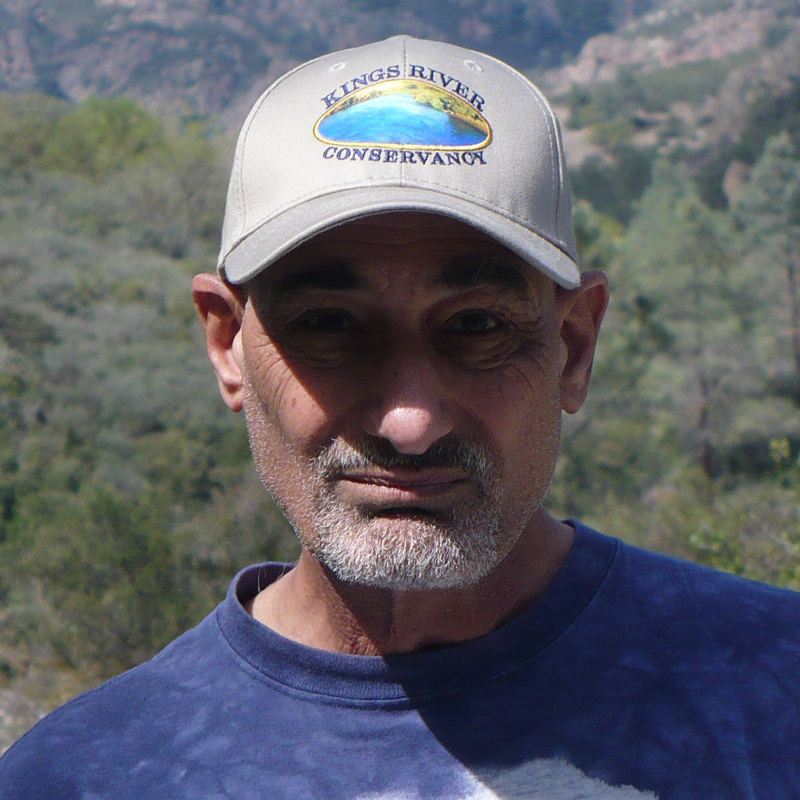

Ukrainians gathered under a canopy-covered matrix of picnic tables at Selma Layne Park in north Fresno on May 14. Some have been living in the Valley for 20 to 30 years. Some are newly arrived. They’re refugees from an unprovoked war that has engulfed their nation and their lives.
Signs displayed the Ukrainian word razom. In English, it means together, and it perfectly expresses the mood. It’s a peaceful scene with people sharing food, talk and laughter while children run around and play games.
Pavlo came to the United States in 2009 fleeing a different traumatic situation, “We came from Ukraine as a refugee, too, but we came by a religious way. We felt persecution when I was in school and persecution by religion.
“And now we invite people. We receive people from Ukraine as refugees from the war. It’s Russian interaction in Ukraine. And we came here to support people, to help them, to protect them, to provide for them.”
His grandmother, two aunts and uncle and cousins are still in Ukraine and unable to leave.
Like most people, Pavlo is taken aback by the suddenness and brutality of the Russian invasion, “I’m Ukrainian. And I know there are no Nazis, there are no fascists in Ukraine.
“There are just people who would like to live in Ukraine, build their country. They would like to be independent from others.
“As I see it, there are many people, my friends, who stand and want to defend their country, their motherland. And it’s a crazy situation. I don’t know why it happened.
“In Ukraine, people never, never fight. Never. They are very peaceful. They like to work hard. But that’s what happened.”
The war is all too real for Viktor, too. He came here 14 years ago and has family in Ukraine’s war zone. He watches the news and is in almost daily contact with his family back in his birth country, showing us a chilling phone video of one of the many Russian jet planes flying over his family home. He’s here to support those who have made it to safety.
Pavlo works for the Community Covenant Church, whose congregation includes numerous Slavic families in the city. Through the church, he’s part of a network that has been helping people who are leaving Ukraine get to the Valley. Once here, refugees are given a guiding hand to find housing, work, human services and other necessities of survival in a strange land.
Ukrainians who are already established in the Valley organized a major effort to provide families a pathway for getting to the United States through Mexico. Andrew was one of those involved. His parents came here as religious refugees in 1989 following the jailing of his grandfather by Soviet authorities. Andrew was born here and now aids new refugees.
“I was in Tijuana three times; we helped out. There were over 20,000 Ukrainians that went through Tijuana the past few months. And then they closed the border.
“Now it’s a sponsorship program. A lot of people came here during that time through Tijuana. So, I met a family on the border and they had no friends, no family. And I invited them to come to Fresno. So now they’re here with us, and we’re helping them out. They have an apartment.”
Among the families being welcomed at the party were Yana with her husband and two young children. They left their Ukrainian hometown of Chernivtsi near the borders of Moldova and Romania in late February when the war began.
Yana, an intelligent, articulate and thoughtful observer, shared her experiences and sentiments about the impact of hostilities. Her city itself was not bombed, but nearby salvos kept everyone in underground shelters and life at home became unsustainable.
“First, we went to Europe. We were there for some time, and then when we discovered this program for Ukrainians, that they can go through Mexico. We made our way from Brussels, from Belgium. So, we fly from Brussels to Cancun, from Cancun to Guadalajara, from Guadalajara to Tijuana. And there we cross the border to San Diego.”
Yana’s family had church friends in Sacramento who hosted them until they could be on their own in Fresno.
Of course, Yana and her family can’t help bearing the weight of sadness and concern for those back home. “Some people, they lost everything, you know? And they lost their family members. They lost their houses.
“And in 2014, when Russia invaded that part of Ukraine, they moved to Kiev and now Russia bombed Kiev. So, they lost their houses in Kiev. And then they moved to the west of Ukraine and somewhere else.
“So, I really feel sorry for all those people. I feel sorry for every family that is broken, for every mother that lost a son or daughter, I mean, there is no explanation to this war and, and it seems like it’s not a war. It’s like a genocide because they’re destroying everything and they’re killing women and kids. So, we have no future and it really breaks my heart.”
Yana says her family is flooded with mixed emotions, “We feel safe here, but of course our heart is there, so it’s not like, oh, I’m safe, I’m fine.
“So yeah, it’s not easy to be in a new country and to learn so many new things, but every day we can see how God is caring for us. We have a place to sleep. We have food to eat where, well, we can see the sunshine and the blue sky over us. So, we are grateful for what we have, but of course we pray for our country.”
It’s fitting that Ukrainians escaping the horrors of war have a home here, whether it’s temporary or permanent. Looking at a satellite image of Ukraine, you see much that is familiar. A vast quilted patchwork of farmland coming in all shapes and sizes, splattered with cities and woodlands. People there, like people here, amid a historic conflict to maintain democracy and dignity.

https://fresnoalliance.com/2022-primary-election-endorsement-grid-2/

